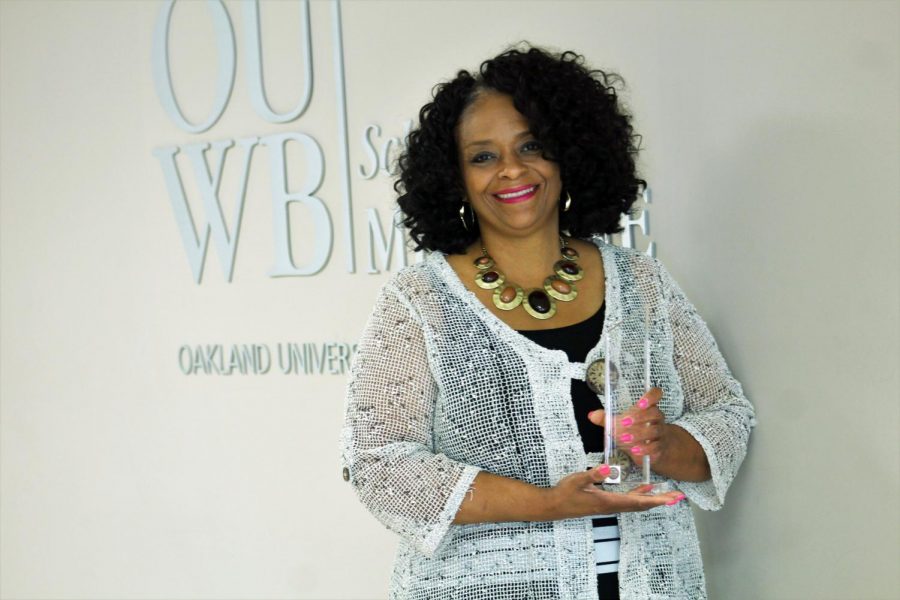OUWB faculty member receives prestigious OU “Dissertation of the Year” award
The Dissertation of the Year award was recently won by Deirdre Pitts, Ph.D., the assistant dean for Faculty Affairs and Professional Development as well as Assistant Professor of Foundational Medical Studies. For her dissertation, Pitts conducted a mixed methods survey across colleges around the U.S., on biases that sociologists on hiring committees have during the hiring processes.
“I was completely overcome with emotion when I learned that I had won the award,” Pitts said. “I was driving when I received an email — ‘Congratulations Deirdre, you have won!’…My initial reaction was tears of joy!”
Pitts expressed that the accomplishment allowed her to realize how significant the research was and how much it was needed.
Associate Professor of Bioethics Jason Wasserman, Ph.D., worked closely with Pitts as a member of her dissertation team.
“Obviously, I was thrilled when I heard that Dr. Pitts won the outstanding dissertation award, because I think she, individually, certainly deserves to be recognized for her hard work,” Wasserman said. “But more than that, I was excited because I think the work itself, the lessons about bias in the hiring process, deserve to be recognized, and so I think this award is an excellent platform for that.”
Her research provides explanations and conveys the experiences of people affected by various biases. Pitts administered her nationwide study to 3,798 sociologists who have served on academic search committees, and her findings revealed differences in how each demographic evaluates candidates. She found that women and men, African-American and white candidates, and tenured employees and non-tenured employees have different criteria about which they are concerned during the hiring process.
“First and foremost, I noticed that throughout my educational pursuit I had only encountered one professor ‘like me,’” Pitts said.
Both Pitts and Wasserman say that the research has helped them evaluate and monitor their own biases. While Pitts says it is impossible to be completely unbiased, it is important to recognize that everyone has them and that managing how they impact decision making is helpful.
“Dr. Pitts brought to the research a true passion for the issues of equity in academic and faculty affairs and a wealth of professional experience working on these issues,” Wasserman said. “In many respects, she was already an expert on these issues before she began the research.”
Wasserman believes that she brought a perspective that can only be learned through her experiences, which greatly benefitted the research.
Pitts explained that while participants in the study may not think they hold conscious or unconscious negative biases toward African American candidates, in her example, they do subtly act upon their biases.
In regard to the future, Pitts says she plans to continue leading training on biases as a certified Cook Ross Unconscious Bias trainer. She has led sessions before in the OUWB community, where she says her training has already had positive impacts.
Pitts also would like to continue her research on biases in the hiring processes, as well as expand into other types of committees that are used in academia, such as promotion and tenure committees, admissions committees, student performance review committees and more.
Pitts would also like to have her dissertation published in the Journal of Higher Education.










